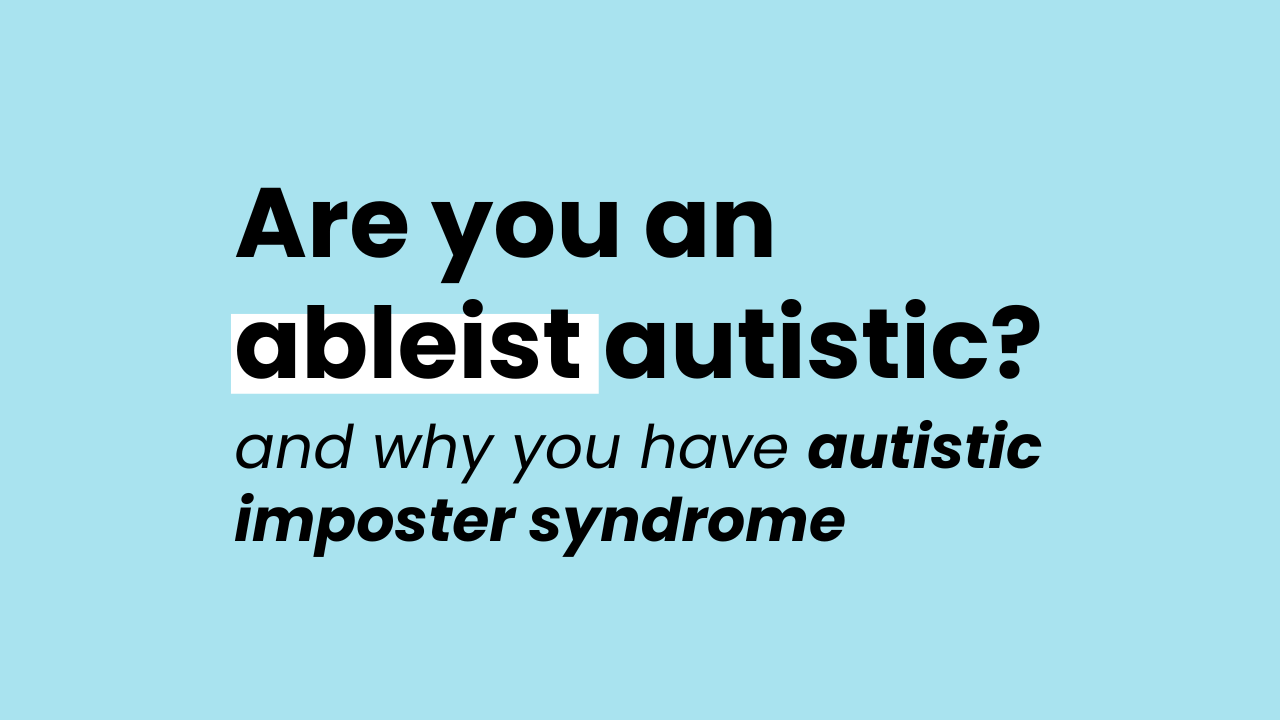Are you an ableist autistic?
May 14, 2023
Am I really autistic? Maybe I’m faking it…autistic imposter syndrome is very common among people who discovered they are autistic later in life. Because we spent so many years of our lives masking and trying to come across as “normal,” the diagnosis of autism can be a surprise to those around you. They may say you “can’t be autistic” because you’re [insert non-stereotypical trait here].
Another reason you may have autistic imposter syndrome is because you don’t believe you’re “autistic enough.” Unfortunately, there is still a widespread belief that autism is a condition that exclusively affects males who are antisocial and are obsessed with trains. So, if you don’t resonate with stereotypical autistic traits, you might believe you’re making it all up.
Even though I am autistic, there are a lot of “normal” things I can do. I can write, speak, move my body, cook, clean, and many other things a majority of people on the autism spectrum cannot do. I can only ever share about the autistic experience from my abled and privileged perspective, a perspective that rings true for many of the autistic people I have spoken with over the last couple years.
In thinking about a unique term to describe autistic imposter syndrome due to privilege, I immediately conjured up “ableist autistic.” Before you make any comments about this terminology, please read my explanation in the next slides.
What is ableism?
Ableism is the discrimination of and social prejudice against people with disabilities based on the belief that typical abilities are superior. At its heart, ableism is rooted in the assumption that disabled people require “fixing” and defines people by their disability. Common examples of ableism include:
Refusing to provide reasonable accommodations
Talking to a person with a disability like they are a child
Assuming people have to have a visible disability to actually be disabled
Using expressions such as “she’s such a psycho” and “you are so retarded” to joke about disability
When I use the term “ableist autistic,” I am obviously not referring to the aforementioned definition of ableism. I also really want to reiterate that this post is not intended to be offensive or disbarring in any way whatsoever. The only reason I am creating this post (as well as all my other content!) is to help break the stigmas around autism and mental health.
That being said, I believe “ableist autistic” accurately describes the guilt or shame an autistic person may experience for not feeling “autistic enough.” The privilege and ability to participate in activities that a majority of the autistic population isn’t can lead to autistic imposter syndrome, which can further lead to masking because you believe you don’t “deserve” accommodations or recognition for your autism.
To sum up, your capabilities and traits as a unique human don’t define “how autistic” you are. If you are autistic, you are autistic. You are not an imposter, but rather, a unique manifestation of a different neurotype! You aren’t exactly the same as another autistic person because it’s ANOTHER PERSON. And lastly, remember that someone who REALLY wasn’t autistic wouldn’t even think they’re autistic in the first place ;)


